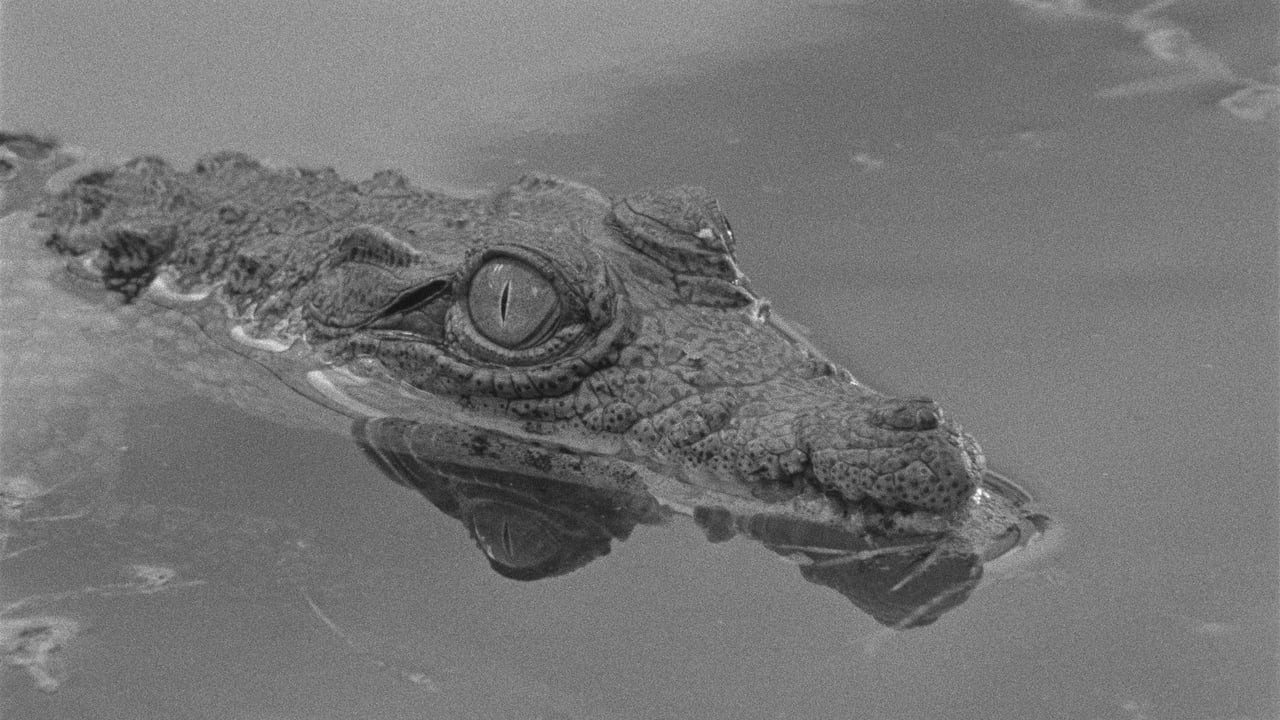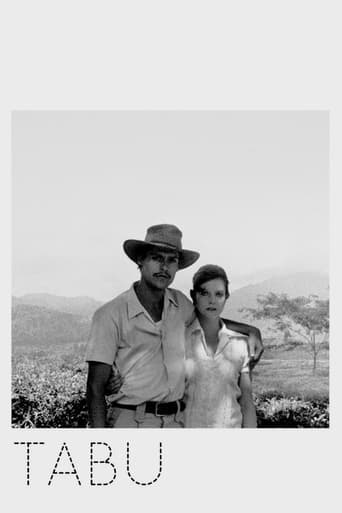

Tabu is exactly the type of poetic old-fashioned film I adore. It's a simple story told very unconventionally, with the long slow death of a character in the first half (entitled "Paradise Lost") and then the best years of her life in the second ("Paradise") to the point of where the aforementioned Paradise came to an end. The aesthetics of the film are the real highlight here and truly capture the essence of the story in a unique way. The lush texture in the rich black and white photography are a delight to watch, and recall the effects Jim Jarmusch's Dead Man's cinematography had with the ethereal, sometimes tragic and sometimes comic atmosphere it created. The timeless cinematography is also reminiscent of the 1920s studio films with manufactured exterior shots and the use of a traditional 1.37:1 ratio. There's a fascinating use of sound too, with the second half being dialogue-less, despite watching characters talk, and featuring only atmosphere sounds of the jungle. There's also a great use of a Ronettes song that I love ostensibly translated into Portuguese. Tabu is a majestic film that had a profound effect on me. It's an interesting take on the long term consequence of a 'taboo' (in this case, adultery). One of the best of the year.9/10
... View MoreWho wants to see a film that's shot in black and white, is slow moving and its second part is like a silent film? If the answer is yes then you will be richly rewarded with Tabu. The Portuguese director Miguel Gomes has made a strange poetic film. A Portuguese film in two parts "Paradise Lost" and "Paradise." The bizarre short prologue transports us to a strange world where an intrepid explorer mourning a lost love gets eaten by a melancholic crocodile in Africa. The crocodile reappears throughout Tabu and accept for concluding that it represents an ancient old soul looking over the proceedings I'm not sure of its significance. The first part is set in modern Lisbon which appears to be full of bland apartment blocks. It explores the relationship between the kind melancholic Pilar (Teresa Madruga) and her gambling addicted; fading neighbor Aurora (Laura Soveral) who has a tendency to exaggerate and get lost in her vivid imagination Aurora is having problems with her housekeeper Santa (Isabel Cardoso). She believes Santa has turned her daughter against her with her black witchcraft. In between rescuing Aurora from the casino, Pilar goes to the cinema, joins the UN protests and shares time with her romantic painter man friend. The health decline of Aurora triggers the death bed request to see Gian Luca Ventura (Henrique Espírito Santo). Over coffee Gian shares another story of Aurora back in deepest darkest Africa. We are transported back to another time and the film takes on another feel, romantic and sensual. Gomes referencing Sydney Pollack's epic romance Out of Africa begins the story with the immortal lines, "She had a farm in Africa." This part is without dialogue but features a finely scripted voice-over and the sounds of Africa. This section melodramatic and dreamlike details the doomed love affair between Aurora (Ana Moreira), and the seductive adventurer Gian (Carlota Cotta). Cotta looks and is framed like a silent film star, Moreira more like a star of French cinema of the sixties. In between the all-encompassing romance of the privileged whites the Africans toil away, in the fields, as servants, basically second class citizens. Throughout the film Gomes intentionally positions the whites as the ruling class whilst the blacks struggle to be heard. Yet this is never over emphasized.Gomes has crafted a film that stays with you. Those moments in time A solitary tear awkwardly swiped away by the elder Gian recalling the loss of great love, the stony faced Santa eating the prawns given to her by the annoyingly kind Pilar, the first meeting of the young lovers almost unable to hide their attraction for each other, the bizarre performance of the boy band at the pool house. The performers are all excellent and Rui Pocas does a great job with the black and white cinematography.
... View MoreThe entire movie delivers a constant flat beat or the pulse of a corpse is an even better comparison. There is no emotional attachment to any of the characters, no suspense, no drama, no climax, no pay off and the dialogue is largely bland and generic. Akin to watching a bunch of retirees in some old nursing home reminiscing to their grandchildren about their past lives which no one really wants to hear about. I've seen a lot of ordinary movies in my time, but this has to be in the top 5 of the worst. I was more impressed with my level of patience in sitting though the entire thing than with anything that was appeasing about the movie itself.
... View MoreYoung Portuguese director Miguel Gomes plunges us into two narratives that are nothing less than pure poetry.The screenplay and refined narration, the delicate but still frenetic soundtrack that dances through Joana Sá's piano keyboards, the contrasting photography (not new, not old), as well as the roaming melancholy of Lisbon and Africa's landscapes, drive us to a distant, dream-like, almost abstracted dimension."Tabu" is truly a cinematic synesthesia, an artistic portrait that, inexplicably, grabs its viewers from the first minute. A genuine pearl that will endure in our thoughts for quite some time. A triumph.8/10
... View More